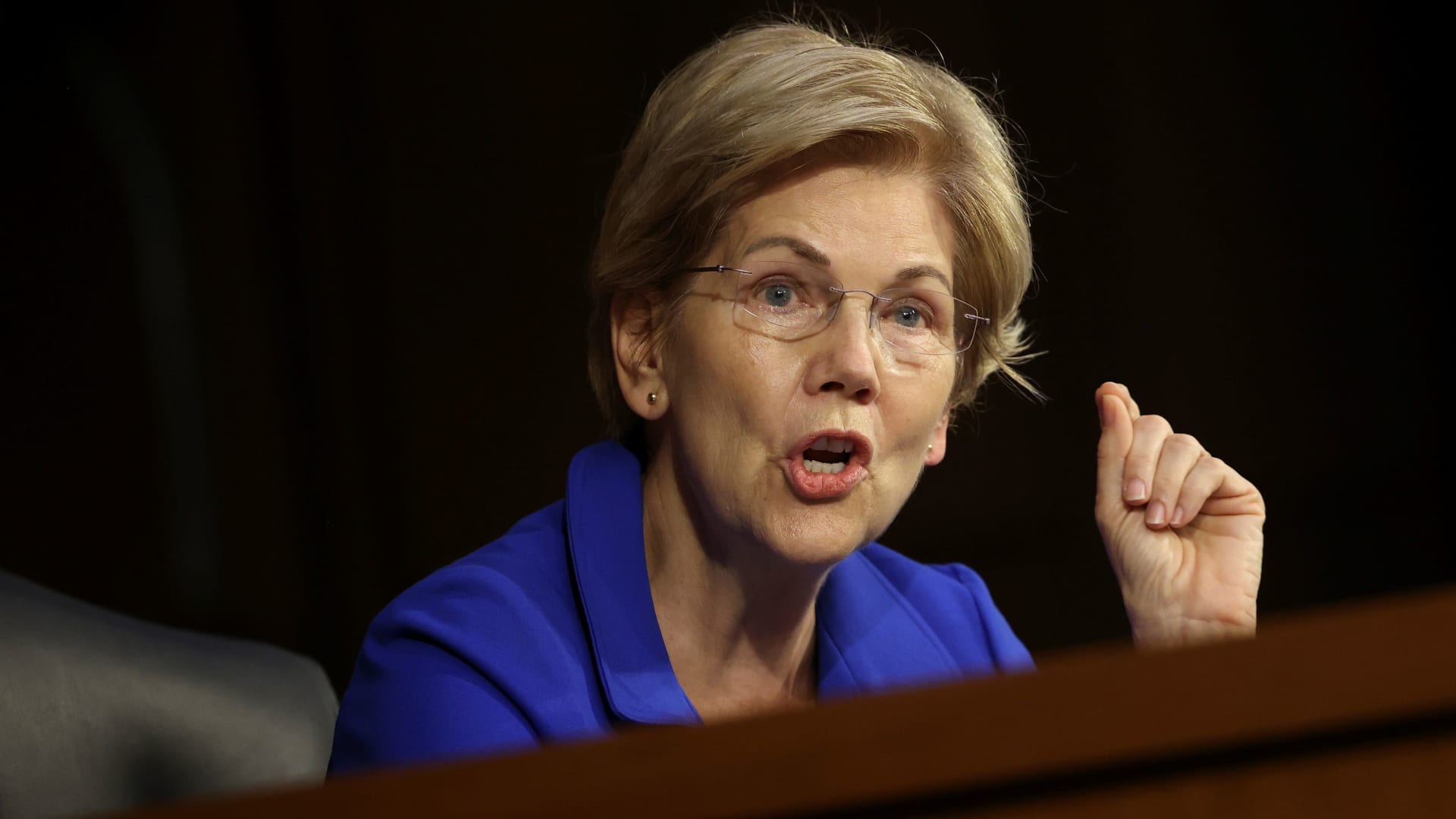Products You May Like
Elon Musk and fellow billionaires should pay it forward in taxes to support the next generation of entrepreneurs who can make a difference, Sen. Elizabeth Warren, D-Mass., told CNBC on Tuesday.
“I’m happy to celebrate success, but let’s remember, Elon Musk didn’t make it on his own. He got huge investments from the government, from taxpayers, from those public school teachers and those minimum wage workers who’ve been paying their taxes all along to get that business up and running and help see it through rough times,” Warren said on “Squawk Box.”
The Massachusetts Democrat was referring to the billions of dollars in U.S. government grant funding, subsidies and incentives that for years have helped two of Musk’s companies — Tesla and SpaceX. Electric cars and commercial space travel were anything but sure bets in their early years. But now, Tesla has a stock market value of more than $1 trillion and SpaceX is one of the most valuable private companies in the world.
“When you make it big … let’s also ask that you pay a fair share in taxes. The 99% pay about 7.2% of their total wealth in taxes every year. That top one-tenth of 1% pays less than half as much. That’s not right. Make an investment so the next Elon Musk gets a chance to make it big as well,” she later added.
Warren’s comments come after the Biden administration on Monday proposed what it calls the Billionaire Minimum Income Tax, which will require American households worth more than $100 million to pay at least 20% of their income in taxes. Over half the revenue could come from households worth upwards of $1 billion.
The senator expressed support for the bill, in line with her tough stance on wealth taxes. Warren has previously supported legislation taxing the wealthy, proposing with other Democrats the so-called Ultra-Millionaire Tax Act in 2021 that would levy a 3% total annual tax on wealth exceeding $1 billion and a 2% annual wealth tax on the net worth of households and trusts ranging from $50 million to $1 billion. She also made taxing the rich a cornerstone of her unsuccessful bid for the 2020 Democratic presidential nomination.
Regarding Musk’s massive tax bill, around $11 billion in 2021, after he sold $14 billion in Tesla stock that year, Warren argued that Musk paid very little in past years, which is not an option for most Americans.
Musk is richest person in the world, according to Forbes’ Real-Time Billionaire List, which pegs his net worth at over $290 billion.
In February, Musk boasted in a tweet that last year he paid the highest tax bill ever in history for an individual in the U.S.
In 2018, when he was also one of the richest people in the world, Warren said, “How much did Elon Musk pay that year? We actually saw his taxes that year and the answer is: He paid zero. The public school teacher did not have the option to pay zero in 2018 or in 2021.”
Warren was citing a ProPublica investigation that found Musk paid zero dollars in 2018 federal income taxes. Musk has said he paid no taxes in 2018 because he draws no salary.
“All we’re saying is, when you make it to the top, to the very tippy, tippy top, then pay something in so everybody else gets a share,” Warren said. “Nobody got rich on their own.”
— CNBC reporter Lora Kolodny contributed to this report.
